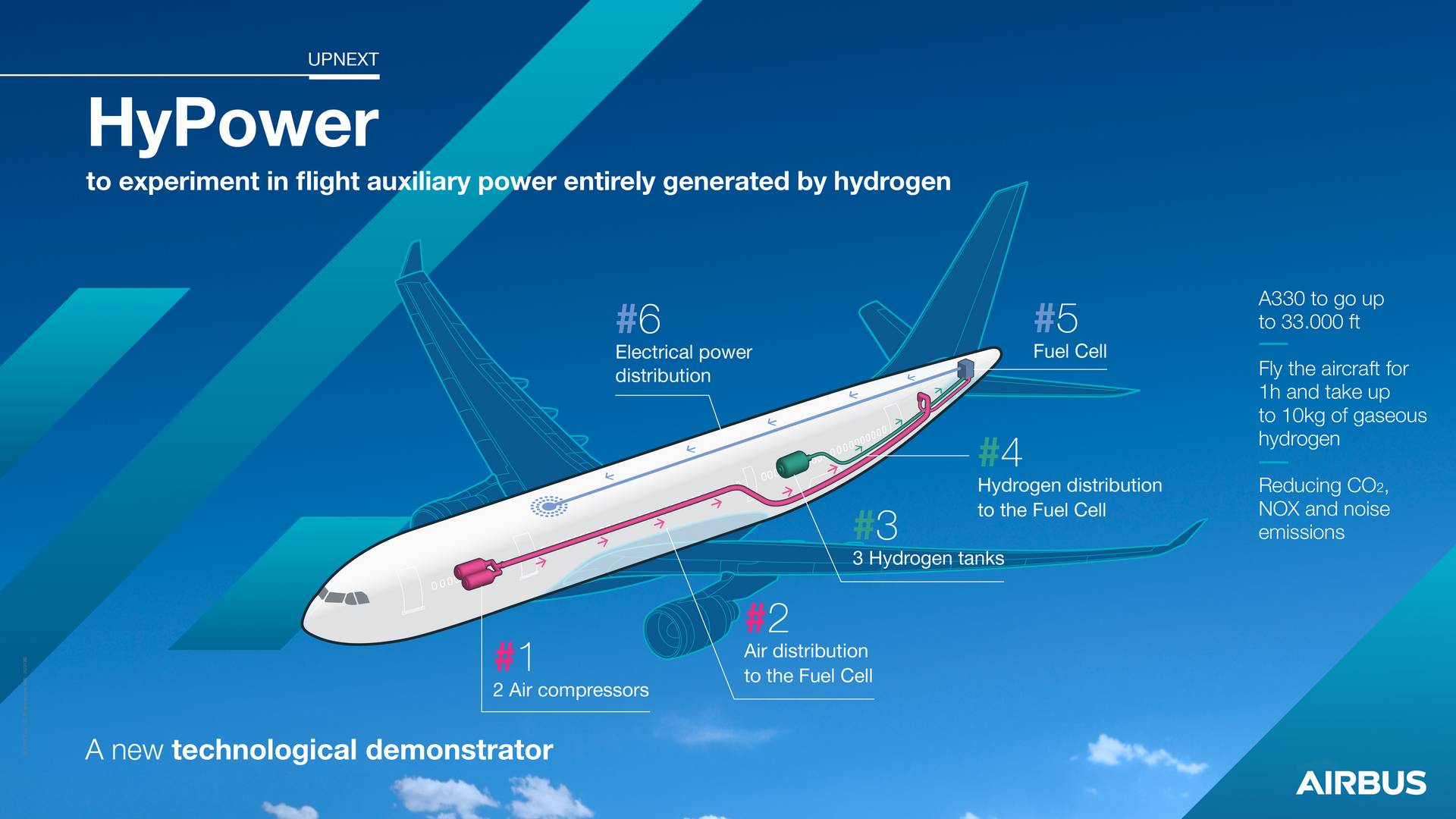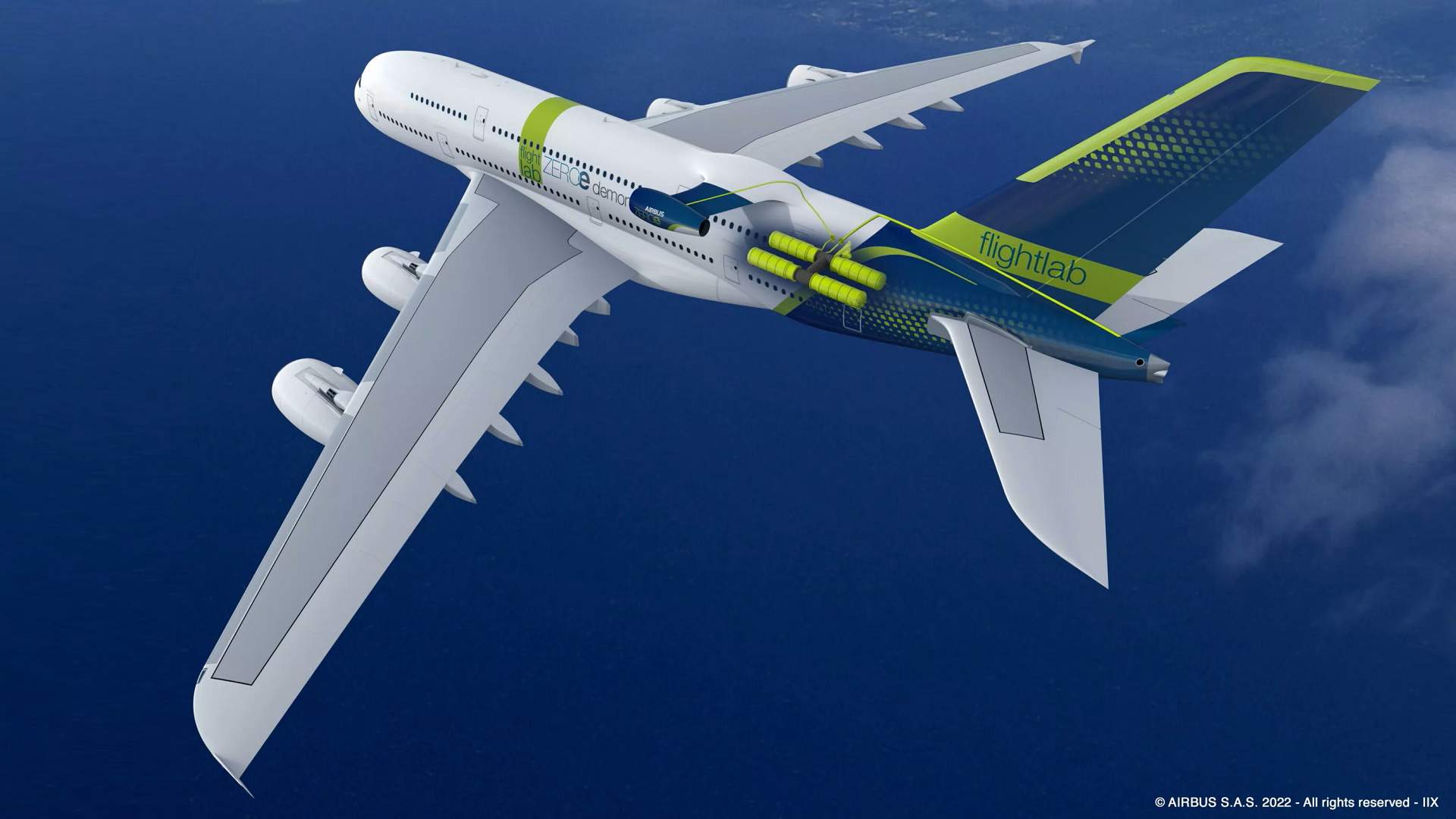Continuing its hydrogen aircraft push, Airbus announced HyPower, in order to test the use of a hydrogen fuel cell as an auxiliary power unit.
This year’s Paris Airshow was a shot in the arm for the industry. It brought respectable orders from the airlines while avoiding much of the hyperbole typical of such shows before the pandemic. Some expected even more orders, but the overall impressions from the show were positive.

Some smaller stories in the show got less attention. Among them was Airbus HyPower, short for Hydrogen Power. This project is part of Airbus UpNext, the manufacturer’s research branch into future technologies.
Obviously, an aircraft using hydrogen for its propulsion would need an auxiliary power unit that uses the same fuel. But in theory, that APU could continue to be a small jet engine, as it is now. However, a hydrogen fuel cell should be more efficient.

That explains why Airbus is testing the idea with the HyPower project. The manufacturer will use an A330 as a test aircraft, in a project that takes place in Spain. Airbus will perform tests both in the air and on the ground, testing the technology in a number of APU use cases.
HyPower And Other Airbus Hydrogen Projects
This is an early technological demonstrator. So, the HyPower Airbus A330 will not use liquid hydrogen. Instead, the aircraft will carry 10 kg (22 lbs) of gaseous hydrogen, flying as high as 25,000 feet. Test flights are expected to last up to an hour.

Separately, Airbus is also preparing an A380 as a flying testbed for both a hydrogen-burning jet engine and a fuel-cell propulsion system. Airbus will also use this A380 to test its CFM RISE concept, which is another possible use case for hydrogen combustion.
The HyPower joins other recent Airbus projects, like the electrification of more aircraft systems that previously relied on bleed air from jet engines, and the development of related power electronics. Airbus is bringing new partners for this project, including STMicroelectronics.

Using hydrogen also means that there is a need for many new secondary systems, to condition and supply cryogenic hydrogen to jet engines. This is the HyPERION project that Airbus is working on alongside ArianeGroup, an Airbus-Safran joint venture.
The next few years should bring more hydrogen-related developments. Airbus currently plans to fly its HyPower A330 demonstrator by the end of 2025.




5 comments
toniratzmer
True. Also keep in mind, that happens with conventional jet fuel, too. Look at the Tenerife disaster where the KLM-747 was filled with fuel to the brim and ended up in a big fireball. Jet fuel is literally designed to burn very well.
toniratzmer
H2 seems to be working great for planes and other heavy transportation vehicles. However, it disqualifies as the „ultimate fuel source“ for everything because of one big disadvantage. No matter how compact and light you might build tanks in the future, or how good fuel cells get. It‘s just very inefficient because you convert it from electricityto H2 and then back to electricity. Plus storage losses.
H2 needs 3 times as much renewable energy than batteries would (best case). Granted, that‘s way better than e-fuel which needs about 17x as much.
Bruce Atkinson
One word – Hindenberg
Spyros Georgilidakis
I don’t think Airbus plans to use cow intestines and canvas to keep gaseous hydrogen from leaking, like the Germans did with the Hindenburg.
Jorge Souza
This is exciting stuff. Hope it proves productive. Have always felt hydrogen is the ultimate fuel source.